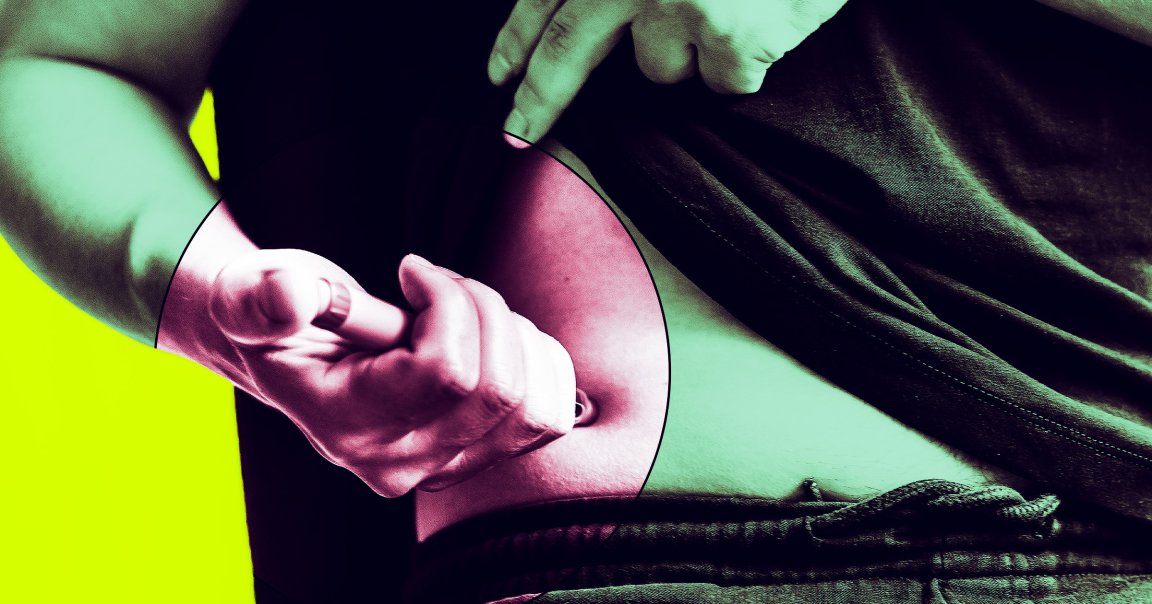
Drugs like Ozempic and Wegovy already had a lengthening laundry list of physical health benefits, but now they’re increasingly showing promise as treatments for neuropsychological conditions as well.
Specifically, one of the most intriguing potential uses for these GLP-1 drugs is in addiction treatment, for vices ranging from alcohol to opioids to stimulants to gambling. And it’s gaining momentum: as STAT News reports, one posh Pennsylvania rehabilitation center is prescribing the drugs to patients — off-label — for exactly that purpose.
The Caron Treatment Center, a nonprofit rehab facility located about 70 miles from Philadelphia, has begun prescribing low doses of semaglutide, the active ingredient in Novo Nordisk’s Ozempic and Wegovy, to its well-heeled clients (who reportedly spend $32,875 for a 28-day stay on its manicured campus.)
According to Steven Klein, an addiction medicine specialist who works at Caron and has helped pioneer the use of GLP-1s in the fight against addiction, the facility’s unprecedented use of GLP-1s shouldn’t be that big of a deal.
“We’re using something off-label under the umbrella of addiction, whether that be food, sex, alcohol, or opioids,” Klein told STAT. “I don’t think of this as doing anything wild west.”
Be that as it may, there hasn’t yet been a ton of research into using the jabs for such ends — though the body of evidence suggesting that GLP-1s can help with addiction and substance use is steadily growing.
What sets Caron apart, STAT notes, is not only its open and aggressive touting of semaglutide as an addiction treatment, but also the people plugging it. Along with Klein, chief medical officer Adam Scioli and medical director Mo Sarhan, who runs the rehab’s sister facility in West Palm Beach, Florida, are all in some form of addiction recovery themselves.
When pursuing their sobriety journeys on the West Coast, Klein and Sarhan met via the former’s Alcoholics Anonymous sponsor. Sarhan was moved by the success he saw in his fellow AA members who used Mounjaro, Eli Lilly’s GLP-1 jab, and after he got a job at Caron, he began prescribing the drugs to patients who met the criteria for its weight loss effects.
“I started to hear from [those patients] that things felt different,” he told STAT. “They weren’t craving as much, and they were more engaged in their recovery programs. So I started doing it a little bit more frequently and with a little more intention. And then, when Steve joined [Caron], we joined forces.”
Klein, who took Mounjaro to help him lose weight years after getting sober, considers GLP-1s to be tantamount to a miracle drug due to his own experiences stemming food addictions with the jab. Sarhan takes a more nuanced view, and thinks that a mix of the drugs, support groups, and other treatment options are resulting in his patients’ success in sobriety.
According to Stephanie Weiss, a National Institute on Drug Abuse staff clinician who researches GLP-1s and addiction but is not involved in Caron’s program, that stance is probably for the best.
“We don’t want people to get too far ahead of where the evidence currently is in terms of using these drugs,” she told STAT. “There’s no such thing as a silver bullet, and it’s probably better not to think of addiction as one single disease.”
Still, Caron’s GLP-1 program, which formally launched in April of this year, just might end up being groundbreaking — especially if some combination of insurance coverage or falling prices could make the drugs more broadly available to people struggling with addiction.
More on GLP-1s: Doctors Have One Weird Trick to Tell When Their Colleagues Are On Ozempic